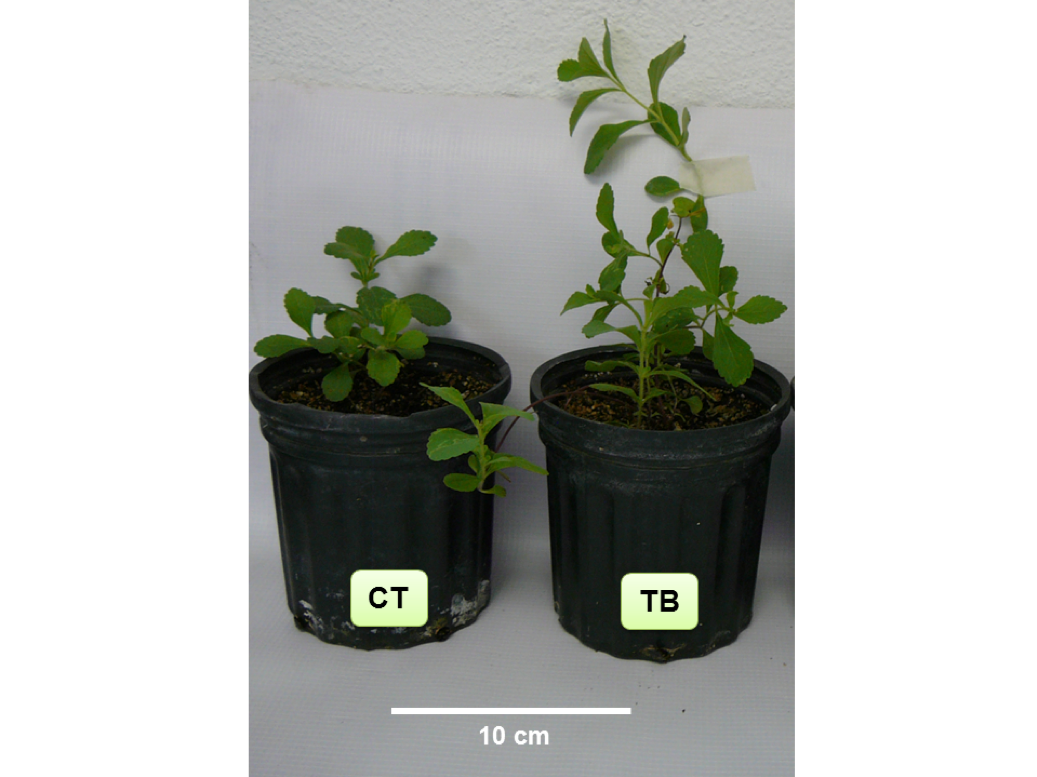 |
|
Stevia rebaudiana is a plant that synthesizes steviol glycosides, which are compounds with sweetening properties. The aim of this work was to evaluate the growth-promoting effect of a micropropagation system in a Temporary Immersion Bioreactor (TIB) and the inoculation with Trichoderma asperellum on the S. rebaudiana plants, and to determine their effect on the production of steviol glycosides and phenolic compounds. S. rebaudiana plants with intact roots were obtained using a TIB with Murashigue and Skoog medium and 0.37 mg L-1 indole butyric acid, and subsequent the plants were inoculated with spores of T. asperellum (4 x 104 spores mL-1). The growth of plants inoculated with the fungus was significantly larger than the plants uninoculated (control). The plants inoculated produced 3 times more steviol glycosides than the plants uninoculated (control); while, the content of phenolic compounds was similar. These results encourage the possibility of using a TIB and T. asperellum for the propagation and growth promotion of S. rebaudiana plants with high content of steviol glycosides.
Keywords: In vitro culture, Phenolic compounds, Plant growth regulators, Natural sweetening compounds, Bioreactor.
|
|
 |

